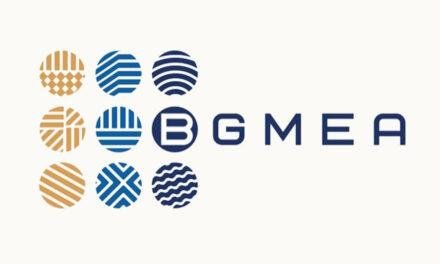 H&M has installed a machine which disassembles old clothing and re-assembles the material into new textiles in one of its stores, in what it claims is a first for the fashion industry .The machine is called Looop and is open to the public from12 October at the retailer’s store in Drottninggatan, Stockholm. It is capable of separating textile blends, which are hard-to-recycle but make up the majority of clothing sold by high-street retailers.
H&M has installed a machine which disassembles old clothing and re-assembles the material into new textiles in one of its stores, in what it claims is a first for the fashion industry .The machine is called Looop and is open to the public from12 October at the retailer’s store in Drottninggatan, Stockholm. It is capable of separating textile blends, which are hard-to-recycle but make up the majority of clothing sold by high-street retailers.
Looop works by cleaning and shredding garments into fibres, separating them by material type and then spinning them into new yarn. The yarn can then be knitted into new garments. The process purports to use no water and no chemicals, but virgin materials do need to be added to ensure there is enough feedstock to create new items. H&M has said it will keep the proportion of virgin materials to a minimum and ensure they are sustainably sourced.
H&M has been working with the Hong Kong Research Institute of Textiles and Apparel (HKRITA) to develop “garment-to-garment” recycling technologies for several years, in recognition of the fact that just 12% of the clothing sold globally each year is recycled. Of this clothing, the vast majority is downcycled – shredded to make products like insulation. It previously debuted a hydrothermal recycling process, but the updated processes used in Looop purport to have a lower environmental footprint.
Customers wishing to use the Looop machine will be asked to pay 100-150SEK (£8.50-£13) to deposit their used clothing and to watch it being recycled in real-time. H&M Foundation’s innovation lead Erik Bang said he hopes the machine will have a “seeing is believing” effect, encouraging consumers to be more mindful of their fashion waste footprint and other businesses to scale up textile recycling efforts.
“Textile recycling is incredibly complex and all the solutions are not here yet,” Bang said. “But sooner than you think, we’ll be able to close that loop and then we need your end-of-life textiles to put the solutions to work.”
H&M Group, which also owns brands like Other Stories and Monki, is working towards an overarching vision of becoming a “fully circular” business by 2030. It is a member of the Ellen Macarthur Foundation’s ‘Make Fashion Circular’ initiative, which covers all parts of the value chain, from design to end-of-life, and also encompasses the Foundation’s third and final circular economy principle – nature restoration. But, like many other fast-fashion chains, it has come under increasing pressure from green groups and consumers to produce fewer products and extend the lifecycles of the clothes, shoes and accessories it sells.
Re-fashioned approach
In related news, online fashion retail platform Zalando announced this week that it now has more than 60,000 items with ‘sustainability flag’ labelling, up from 27,000 this time last year. Flags are awarded to products with at least one characteristic that makes them more environmentally friendly than others in their category, such as the use of recycled, organic or regenerative materials. Pre-owned items are also flagged up.
Zalando said in a statement that four in ten of its customers are now opting for items with a flag. “In a recent internal survey, 34% of our customers said that in light of the coronavirus pandemic, sustainability has become more important to them,” Zalando’s chief executive Rubin Ritter said.
“With this major shift in mindset, there is a demand and momentum for change, and a need for the fashion industry to transform. Together with our partners, we want to be the engine for this change and enable our customers to make more sustainable choices even more easily.”
Zalando has set out a string of sustainability commitments over the past year. It has bolstered a commitment to carbon-neutral operations with science-based climate targets and an estate-wide solar panel and green buildings scheme.
To improve its assessments for the sustainability flag labelling scheme and to encourage third-party brands to beef up their own environmental approaches, the business has signed up to the Sustainable Apparel Coalition (SAC) to sustainability assessments mandatory for its private labels and partner brands sold on its platform.





















